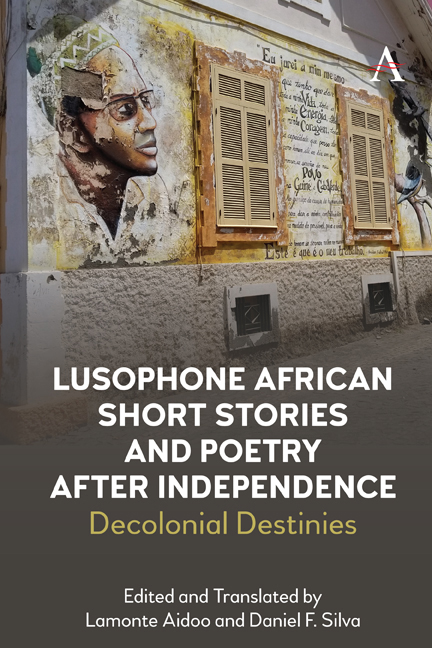Chapter 10 - Silvino Lopes Évora
Published online by Cambridge University Press: 23 February 2022
Summary
Introduction
Born in 1976, Silvino Lopes Évora has become a celebrated literary and intellectual voice of the first generation of Cape Verdean writers born after independence. His locale of birth, Tchon Bom in the municipality of Tarrafal, contains powerful physical and historical reminders of Portuguese colonialism, neighboring most notably, the Portuguese prison camp bearing the municipality's name. Portugal's fascist dictator, António de Oliveira Salazar opened the prison camp in 1936 to house political prisoners and anticolonial dissenters up to the end of his regime and Portugal's colonial project in Africa in 1974. The municipality figures prominently in the collective historical memory of Portuguese colonialism for not only Cape Verdeans but also throughout the Lusophone world.
Following his primary education in Assomada, and after completing his secondary education in the Cape Verdean capital, Santiago, Évora moved to Portugal to earn his bachelor's degree in journalism from the University of Coimbra. He then completed his master's and doctorate degrees in communication studies at the University of Minho in Braga, Portugal, going on to conduct research at the University of Santiago de Compostela in Spain before returning to Cabo Verde as a professor of communication studies at the University of Cabo Verde in Praia. In addition to publishing his master's and doctoral theses as respective books, he has also written and published two collections of poetry: Rimas no Deserto (Rhymes in the Desert, 2009) and O Passaporte da Diáspora (The Passport of the Diaspora, 2010). He is also the author of numerous academic journal articles in fields related to communication studies and cultural analysis.
His acclaimed poetic work is centered on both local and diasporic registers of postcoloniality and Cape Verdean nationhood. As evidenced in the first poem below, “Tarrafal,” following his meta-poetic prose reflection on the role of poetry in individual and collective life, local space and the present are rendered knowable through longer histories and geographies of power. His own transnational movement figures prominently in the collection as a vantage point for national articulation situated also in these longer histories of power. Cape Verdean migration and diaspora, in this regard, are not externalized complications of nationhood, but integral components to it—critical vantage points toward knowing and signifying national sovereignty in relation to larger processes of empire, global racial capitalism, and the reproduction of post-colonial precarity.
- Type
- Chapter
- Information
- Lusophone African Short Stories and Poetry after IndependenceDecolonial Destinies, pp. 127 - 136Publisher: Anthem PressPrint publication year: 2021



